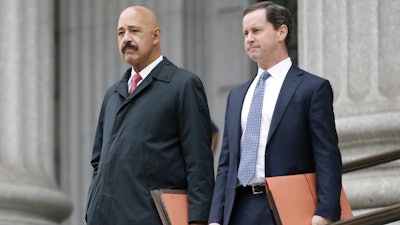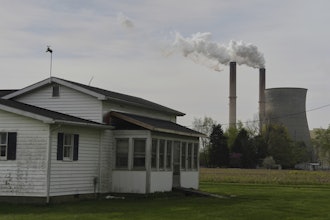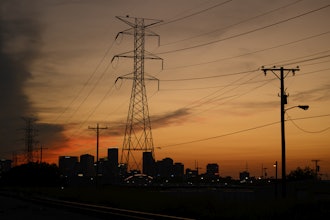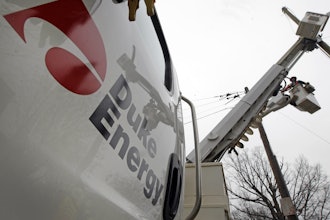
NEW YORK (AP) — Climate change may be the defining risk for oil and gas companies in coming decades, and attorneys for New York state are saying Exxon Mobil misled investors about how it was handling that risk.
The state made closing arguments Thursday in a case that accused the energy giant of downplaying the impact of stricter climate regulations in a warming world.
Exxon countered that the company has been taking climate change risks seriously and its executives did nothing wrong.
The lawsuit, brought by New York State Attorney General Letitia James, says Exxon Mobil used two sets of books to account for how potential regulations would impact its business.
"The question in this case is whether Exxon's disclosures were accurate, and the evidence shows they were not," said attorney Jonathan Zweig, arguing for the state.
In shareholder meetings and reports, Exxon was using two different metrics to account for stricter climate regulations: greenhouse gas costs, which measure how local regulators may tax emissions, and proxy costs, which aim to predict how demand for oil and gas may change around the world due to regulations. Exxon attorneys and executives have said the company applied appropriate costs depending on the situation.
But the state says Exxon was conflating these concepts, leading investors to believe the company was applying a projected cost of $80 per ton for its emissions when it was not, and making some oil and gas development projects look more attractive to investors, Zweig said.
"Exxon applied much lower costs or no costs at all," Zweig said.
For example, Exxon made an $850 million investment into a chemical facility in Beaumont, Texas, but didn't apply the appropriate greenhouse gas costs in its projections, Zweig said. Instead, "Exxon was making a business as usual assumption that existing law would be frozen in place forever," Zweig said.
In assessing an oil sands project in Alberta, Canada, Exxon assumed costs would remain flat through 2030 and 2040, instead of applying escalating costs for the likelihood of increasingly stringent climate regulation, Zweig said.
"The reality is that many investors, including some of the largest financial firms in the world, believe there is a real likelihood that governments will rise to the challenge of climate change," Zweig said.
Exxon Mobil denied the charges, saying the energy giant developed internal metrics to determine how future climate regulations would impact its business.
"Exxon Mobil took climate risk seriously," said Ted Wells, an attorney from law firm Paul, Weiss, Rifkind, Wharton & Garrison who represented Exxon. "This is not a case where we said one thing to the public externally and ignored it internally. We did what we said, and we showed you the model so you could see it."
Exxon denied using two sets of books and said its executives made it clear they were applying proxy costs in all cases and greenhouse gas costs where appropriate, because each situation is different.
In Alberta, Exxon executives drilled down on the greenhouse gas issue and decided to use existing local regulations in their projections because they did not think politicians would escalate their policies, Wells said.
New York failed to prove investors were harmed because none of the state's witnesses were investors who read Exxon's reports and later said they felt misled, he said.
"I'm not saying they have to bring hundreds of investors into the courtroom, but they've got to bring somebody," Wells said.
New York has asked for a comprehensive review and wants Exxon to pay an estimated $476 million to $1.6 billion in restitution to shareholders.
The outcome of the case will be decided by New York State Supreme Court Justice Barry Ostrager.





















